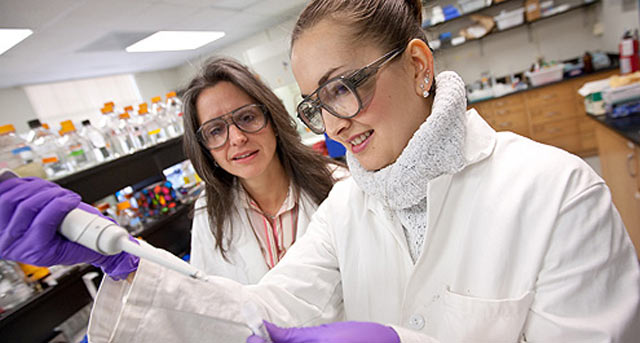According to a new study published today in the online journal mBio, male scientists are far more likely to commit fraud than females and the fraud occurs across the career spectrum, from trainees to senior faculty.

“The fact that misconduct occurs across all stages of career development suggests that attention to ethical aspects of scientific conduct should not be limited to those in training, as is the current practice,” said senior author Prof Arturo Casadevall of the Yeshiva University’s Albert Einstein College of Medicine.
“Not only are men committing more research misconduct,” said study co-author Dr Joan Bennett of Rutgers University. “Senior men are most likely to do so.”
The scientists used data from the U.S. Office of Research Integrity, an organization that investigates allegations of misconduct in research supported by the Department of Health and Human Services.
They found that out of the 227 individuals sanctioned for committing scientific misconduct – fabrication, falsification or plagiarism – between 1994 and the present, 66% were male, a number that far outstrips their overall representation among researchers in the life sciences. And although men represent about 70 percent of faculty in the life sciences, 88 percent of faculty who committed misconduct were male.
“If the fact that men are more likely to commit scientific misconduct is less than surprising,” Prof Casadevall said, “what did surprise the authors is the fact that misconduct is not confined to inexperienced, early-career strivers.”
“When you look at the numbers, you see that the problem of misconduct carries through the entire career of scientists,” Prof Casadevall said. Faculty (32 percent) and other research personnel (28 percent) represented a total of 60 percent of cases, whereas students (16 percent) and post-doctoral fellows (25 percent) were sanctioned in only 41 percent of cases.
The study did not examine why male scientists are more likely to commit fraud. One possibility is that misconduct is biologically driven.
“As research has shown, males tend to be risk takers, more so than females, and to commit fraud entails taking a risk,” Prof Casadevall said. “It may also be that males are more competitive, or that women are more sensitive to the threat of sanctions. I think the best answer is that we don’t know. Now that we have documented the problem, we can begin a serious discussion about what is going on and what can be done about it.”
“While calling for more research to understand the motives for scientific misconduct,” Prof Casadevall recommended periodic ethics training for scientists at all levels of academia.
“Right now we target trainees for ethics training,” he added. “We don’t do anything after they are hired. It might help if universities required refresher courses in ethics, as they do with courses to prevent sexual harassment in the workplace. It won’t stop all misconduct, but it’s one place to start.”
_______
Bibliographic information: Ferric Fang, Joan Bennett, Arturo Casadevall. Males Are Overrepresented among Life Science Researchers Committing Scientific Misconduct. mBio, published online January 22, 2013







